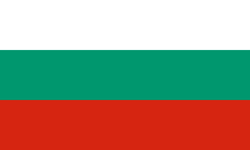Countries
IPPOG
Members
Ireland

Intro
In Ireland, promoting curiosity, creativity and critical thinking through fundamental physics is an important part of our scientific and educational mission. The Irish particle physics and cosmology community is actively engaged in introducing students, teachers and the wider public to the wonders of the Universe - from the smallest building blocks of matter to the evolution of the cosmos.
Outreach and education activities are coordinated through universities, research institutes, and collaborative national efforts, with support from organisations such as the Dublin Institute for Advanced Studies (DIAS), Research Ireland, and the Irish Centre for High-End Computing (ICHEC). These activities include school visits, physics Masterclasses, public lectures, science festivals, exhibitions, online resources, and engagement with teachers through professional development workshops.
Ireland has joined CERN in 2025, marking a new era of participation in international scientific discovery and collaboration. As part of this momentum, we aim to inspire the next generation of scientists and engineers, promote scientific literacy, and foster an appreciation for the role of fundamental research in society.
Our goal: to make particle physics accessible, engaging, and meaningful to all.
Details
JOINED: 2016
CURRENT STATUS: MEMBER
In Éirinn, is cuid thábhachtach dár misean eolaíoch agus oideachasúil é fiosracht, cruthaitheacht agus smaointeoireacht chriticiúil a chothú trí fhisic bhunúsach. Tá pobal na fisice cáithníní agus na cosmeolaíochta in Éirinn gníomhach i dtabhairt isteach na hiontais a bhaineann leis an gCruinne do dhaltaí, do mhúinteoirí agus don phobal i gcoitinne - ó na bloic thógála is lú de dhamhna go héabhlóid na cruinne.
Tá gníomhaíochtaí for-rochtana agus oideachais á gcomhordú trí ollscoileanna, institiúidí taighde, agus iarrachtaí comhoibríocha náisiúnta, le tacaíocht ó eagraíochtaí ar nós Institiúid Ard-Léinn Bhaile Átha Cliath (DIAS), Taighde Éireann, agus an tIonad Náisiúnta Ríomhaireachta Ardfheidhmíochta (ICHEC). Áirítear leis na gníomhaíochtaí seo cuairteanna ar scoileanna, Máistir-Ranganna fisice, léachtaí poiblí, féilte eolaíochta, taispeántais, acmhainní ar líne, agus rannpháirtíocht le múinteoirí trí cheardlanna forbartha gairmiúla.
Chuaigh Éire isteach i CERN sa bhliain 2025, rud a léiríonn ré nua de rannpháirtíocht i bhfionnachtain eolaíoch idirnáisiúnta agus i gcomhoibriú eolaíoch. Mar chuid den tsreabhadh nua seo, tá sé mar aidhm againn an chéad ghlúin eile d’eolaithe agus d’innealtóirí a spreagadh, litearthacht eolaíochta a chur chun cinn, agus meas a chothú ar ról na taighde bunúsaí sa tsochaí.
Ár gcuspóir: fisic cháithníní a dhéanamh inrochtana, tarraingteach agus ábhartha do chách.
Representative
Venus Keus
Dr. Venus Keus is a theoretical physicist specialising in particle physics and early universe cosmology. They received their PhD in 2014 from the University of Liege, Belgium, with a focus on the theoretical foundations of non-minimal Higgs frameworks. Following their doctorate, they conducted research in collider phenomenology at the University of Southampton and later worked on cosmology at the University of Helsinki. They now lead a research group in particle cosmology as a Senior Research Fellow at the Dublin Institute for Advanced Studies (DIAS).
IPPOG
IPPOG Coordination Team
Master Student
Hector Pillot
IPPOG
Members
United Kingdom

Intro
The UK has a diverse and substantial portfolio of particle physics research and outreach activities. UK physicists collaborate and conduct research in projects all over the world and within the UK. These activities include the ATLAS, CMS, LHCb, and ALICE experiments at the Large Hadron Collider, experiments studying the nature of the neutrino such as DUNE, T2K/HyperK, MicroBooNE, SoLiD and SNO+, experiments dedicated to the search for dark matter such as LZ, DarkSide, ADMX and AION, experiments at the intensity frontier such as Mu2e, g-2, Mu3e, and NA62, and robust initiatives in accelerator development, future detector instrumentation, and theoretical research. The UK boasts a vibrant culture of public engagement embedded in individual institutions and spanning experimental research programmes. This includes a national programme of schools masterclasses, and multiple initiatives making use of scientific data from experiments in educational and outreach activities. UK physicists and public engagement professionals regularly organise and contribute to public events at the institutional and national level, and develop online resources, smartphone applications, posters/booklets, and contribute to teacher training and to publications on educational and public engagement pedagogy. The UK hosts successful public engagement collaborations with artists across a range of visual and performing arts. A particular focus of the UK public engagement strategy is in reaching audiences with low science capital or in geographically remote areas. Examples include leadership of the Physics Without Frontiers programme and the development of an award-winning innovative programme to enable visually impaired audiences to engage with particle and accelerator physics.
Details
Representative
Chris Allton
Australian by birth and education, Chris’s academic career has taken him to jobs across Europe. He obtained his B.Sc. from the University of Queensland, Brisbane, and a Ph.D. from the Australian National University, Canberra. His research career began with a brief stint in Edinburgh followed by appointments in Southampton and Rome. He then moved to Swansea University in the UK as a member of academic staff.
IPPOG
IPPOG Forum Members
Pierre Auger Observatory
Intro
The Pierre Auger Observatory, located in the Mendoza province of Argentina, is the largest experiment in the world dedicated to the study of ultra-high-energy cosmic rays.
Details
El Observatorio Pierre Auger, ubicado en la provincia de Mendoza, Argentina, es el experimento más grande del mundo dedicado al estudio de rayos cósmicos de ultra alta energía.
Representative
Karen Salomé Caballero Mora
IPPOG
IPPOG Forum Members
Pierre Auger Observatory
Intro
The Pierre Auger Observatory, located in the Mendoza province of Argentina, is the largest experiment in the world dedicated to the study of ultra-high-energy cosmic rays.
Details
El Observatorio Pierre Auger, ubicado en la provincia de Mendoza, Argentina, es el experimento más grande del mundo dedicado al estudio de rayos cósmicos de ultra alta energía.
Representative
Beatriz Garcia
IPPOG
IPPOG Forum Members
Romania

Intro
The particle physics community in Romania is centred around CERN collaborations, carried out by physics institutes and major universities in the country (mainly: Bucharest, Cluj, Iasi, Timisoara).
The promotion of physics, of exact sciences and communication with society are important missions of these entities.
"Particle Physics Masterclasses" is the most prestigious action we do for high school students and offers us excellent feedback.
Details
JOINED: 2016
CURRENT STATUS: MEMBER
Comunitatea de Fizica Particulelor din Romania este centrata in jurul colaborărilor CERN, efectuate de institutele de fizica si universitățile mari din tara (in principal: București, Cluj, Iași, Timișoara).
Promovarea fizicii, a științelor exacte si comunicarea cu societatea sunt misiuni importante ale acestor entități.
"Particle Physics Masterclasses" este acțiunea cea mai prestigioasă pe care o organizăm pentru elevi de liceu si ne oferă un feed-back excelent.
JOINED: 2016
CURRENT STATUS: MEMBER
Representative
Florin Secosan
IPPOG
IPPOG Forum Members
Romania

Intro
The particle physics community in Romania is centred around CERN collaborations, carried out by physics institutes and major universities in the country (mainly: Bucharest, Cluj, Iasi, Timisoara).
The promotion of physics, of exact sciences and communication with society are important missions of these entities.
"Particle Physics Masterclasses" is the most prestigious action we do for high school students and offers us excellent feedback.
Details
JOINED: 2016
CURRENT STATUS: MEMBER
Comunitatea de Fizica Particulelor din Romania este centrata in jurul colaborărilor CERN, efectuate de institutele de fizica si universitățile mari din tara (in principal: București, Cluj, Iași, Timișoara).
Promovarea fizicii, a științelor exacte si comunicarea cu societatea sunt misiuni importante ale acestor entități.
"Particle Physics Masterclasses" este acțiunea cea mai prestigioasă pe care o organizăm pentru elevi de liceu si ne oferă un feed-back excelent.
JOINED: 2016
CURRENT STATUS: MEMBER
Representative
Roxana Zus
IPPOG
IPPOG Forum Members
Romania

Intro
The particle physics community in Romania is centred around CERN collaborations, carried out by physics institutes and major universities in the country (mainly: Bucharest, Cluj, Iasi, Timisoara).
The promotion of physics, of exact sciences and communication with society are important missions of these entities.
"Particle Physics Masterclasses" is the most prestigious action we do for high school students and offers us excellent feedback.
Details
JOINED: 2016
CURRENT STATUS: MEMBER
Comunitatea de Fizica Particulelor din Romania este centrata in jurul colaborărilor CERN, efectuate de institutele de fizica si universitățile mari din tara (in principal: București, Cluj, Iași, Timișoara).
Promovarea fizicii, a științelor exacte si comunicarea cu societatea sunt misiuni importante ale acestor entități.
"Particle Physics Masterclasses" este acțiunea cea mai prestigioasă pe care o organizăm pentru elevi de liceu si ne oferă un feed-back excelent.
JOINED: 2016
CURRENT STATUS: MEMBER
Representative
Calin Alexa
IPPOG
IPPOG Forum Members
Bulgaria

Intro
Sofia Tech Park develops activities to support start-ups, small and medium enterprises, science, education and innovation. There are few main components included in the park:
Incubator – The incubator community includes start-ups and developed companies, investment funds and educational organizations.
Forum – A venue for events in the field of science, education, innovation, technology and entrepreneurship.
Experimentarium – A permanent interactive composition “TechnoMagicLand” for children with interests in the field of natural sciences.
Laboratory complex (R&D&I consortium) – Our 11 laboratories offer an opportunity for development of research and business projects in various research areas.
Details
JOINED: 2016
CURRENT STATUS: MEMBER
София Тех Парк развива дейности в подкрепа на стартиращи предприятия, малки и средни предприятия, наука, образование и иновации. Има няколко основни компонента, включени в парка:
Инкубатор – Общността на инкубатора включва стартиращи и развити компании, инвестиционни фондове и образователни организации.
Форум – Място за събития в областта на науката, образованието, иновациите, технологиите и предприемачеството.
Експериментариум - Постоянна интерактивна композиция “ТехноМеджиkЛенд” за деца с интереси в областта на природните науки.
Лабораторен комплекс (Консорциум за научноизследователска и развойна дейност) – Нашите 11 лаборатории предлагат възможност за развитие на изследователски и бизнес проекти в различни изследователски области.
JOINED: 2016
CURRENT STATUS: MEMBER
Representative
Zornitsa Zaharieva
IPPOG
IPPOG Forum Members
ATLAS Collaboration
Intro
ATLAS is a general-purpose particle-physics experiment at the Large Hadron Collider (LHC) at CERN. It is run by an international collaboration with about 5000 members from 180 institutions in 40 countries worldwide. It has been designed to exploit the full discovery potential and the huge range of physics opportunities that the LHC provides.
ATLAS' scientific exploration uses precision measurement to push the frontiers of knowledge by seeking answers to fundamental questions such as: What are the basic building blocks of matter? What are the fundamental forces of nature? Could there be a greater underlying symmetry to our universe?
ATLAS physicists test the predictions of the Standard Model, which encapsulates our current understanding of what the building blocks of matter are and how they interact. These studies can lead to ground-breaking discoveries, such as that of the Higgs boson, physics beyond the Standard Model and the development of new theories to better describe our universe.

